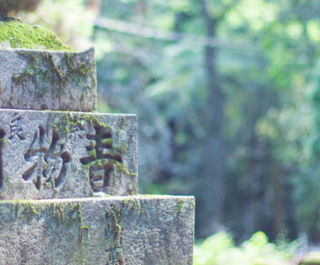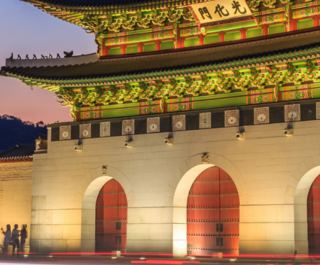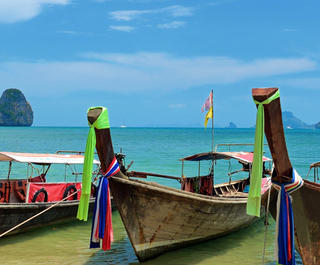
Travelling to a country where you don’t speak the language can be intimidating. How do you communicate? How can you tell if someone speaks English? How do you ask politely for help when you don’t know what anyone is saying? Here is a quick guide to just some of our top destinations in Asia and how to say the basics like please and thank you. The locals will love you for it.
Japan
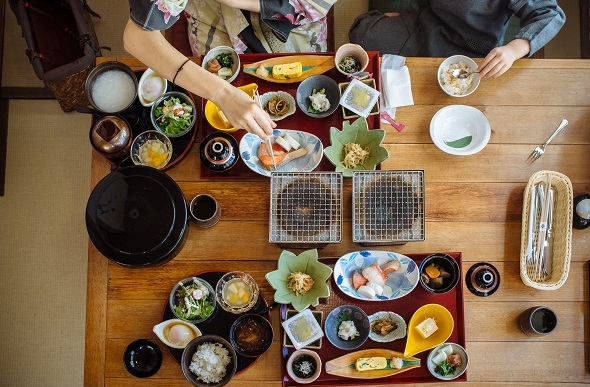 Ordering food in Japan can be difficult without key phrases, but luckily many restaurants use a vending machine with photos to help you order what you want. (Image: Getty)
Ordering food in Japan can be difficult without key phrases, but luckily many restaurants use a vending machine with photos to help you order what you want. (Image: Getty)Japanese are incredibly polite, so much so that you may have no idea whether they can speak English or not, nor whether you’re offending them in any way. If you do memorise a few key Japanese words however, you’ll find it much easier greeting and farewelling when you enter any shop, restaurant or venue – as everyone always says hello and goodbye!
Hello - “Konnichiwa” or “moshi moshi”
Thank you - “Arigatou gozaimasu”
Yes - “Hai”
No - “iie”
I don’t speak Japanese - “Nihongo ga wakarimasen”
Do you speak English? - “Eigo o hanashimasu ka?”
Bonus phrase
“Yoroshiki onegaishimasu” – This means both please and thank you all in one, you can use it before or after the recipient helps you out.
China
 Knowing some of the language will certainly help navigating produce markets in China. (Image: Getty)
Knowing some of the language will certainly help navigating produce markets in China. (Image: Getty)China is a country that can be rather difficult to navigate if you don’t speak the language. These key phrases will certainly help you break the barrier to begin with.
Hello - “Ni hao” It means something between ‘how are you?’ and ‘hello’ and is the most common greeting
Thank you - “xiexie” (sshyeah-sshyeah)
Bathroom - “Cesuo” (tser-swor)
Cheers! - “Gan bei”
Do you speak English? - “Ni hui shuo yingyu ma?”
Bonus phrase
“Gongxi facai” – Happy New Year (used at Chinese New Year)
Vietnam
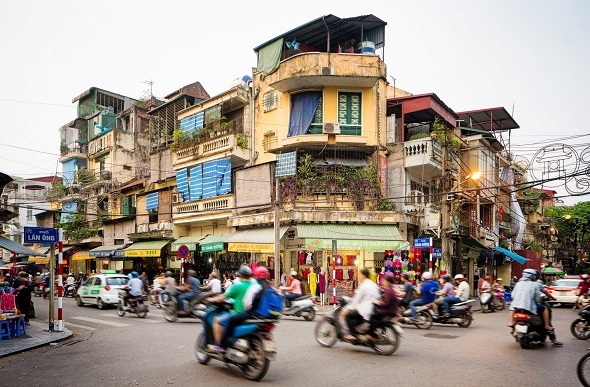 Local language aside, travelling in Vietnam requires excellent road awareness to navigate the busy streets. (Image: Getty)
Local language aside, travelling in Vietnam requires excellent road awareness to navigate the busy streets. (Image: Getty)As in Japan, Vietnamese people are generally very polite and friendly. Using some basic but key greetings and questions in their language will definitely help you make a good impression and show some respect with locals.
Hello - “Xin chao!” (Sin chow)
Goodbye - “Tam biet”
Thank you - “Xin Cam on” (sin gahm un)
Yes - “Vang” (vung)
No - “Khong” (khome)
How much? -“Bao nhieu” (bow nyew)
Excuse me/ sorry - “Xin loi” (seen loi)
Thailand
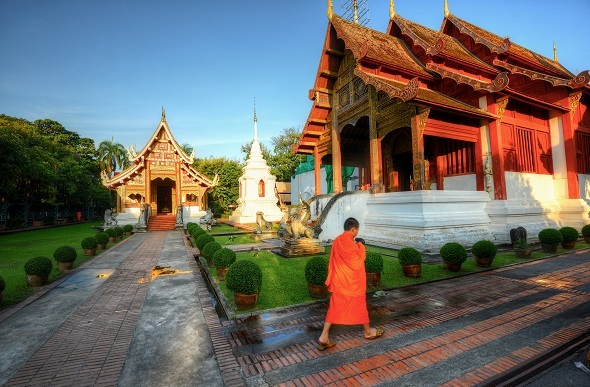 The Thai language might be difficult to master, but the beautiful temples and cultural sights are very easy on the eye. (Image: Getty)
The Thai language might be difficult to master, but the beautiful temples and cultural sights are very easy on the eye. (Image: Getty)Thai isn’t the easiest language to master, but as with most places, showing respect by using key Thai phrases will help earn respect from locals. Most locals working in the tourism industry or in touristy areas will speak English, but of course it’s always best to ask them in Thai first.
Hello and goodbye – “sa-wut dee krup” (if you’re a guy) or “sa-wut dee kai” (if you’re a lady)
Hi and bye – “wut-dee”
Please – “ga-roo-nah”
Thank you – “korp-koon”
Do you speak English? – “koon poot pah-sah ung-grit bpen mai?”
Do you understand? – “khao jai mai”
Bonus phrase
“Mee may-noo paa-saa ang-grit mai” – Do you have an English menu?
Bali
 Getting on the good side of the locals by politely using their language, your Bali escape will be that much more relaxing. (Image: Getty)
Getting on the good side of the locals by politely using their language, your Bali escape will be that much more relaxing. (Image: Getty)In Bali locals speak both Balinese and Indonesian. Indonesian being the (much) easier language to learn, and given many locals in Bali are actually from other parts of Indonesia, here are a few key Indonesian phrases to use while on the island.
Hello – “Halo”
Please – “Silakhan”
Thank you – “Terima Kasih”
Good bye – “Good bye”
Good night – “Selamat malam”
Good – “Bagus”
Bad – “Buruk”
How much? – “Berapa?”
Delicious – “Inna”
Visit your local Flight Centre store or call 131 600 for more advice and the latest deals on travelling to Asia.


